Earlier today, CoinDesk published an article that highlighted the upcoming establishment of Seoul’s “first blockchain-based administrative services” later this year in November. According to CoinDesk, “three priorities were set for completion by the November deadline” - a blockchain-based reward system that utilizes “S-Coin” for payments, a blockchain service for “submitting qualifications without paper documents,” and an enhancement of the ICONLOOP-designed blockchain-based citizen card to “enable digital authentication for the use of public services”.
Laying the Groundwork
In order to understand ICON and ICONLOOP’s potential role in the Seoul government’s blockchain initiatives, we have to take a step back and discuss how we arrived here in the first place.
September 2018
In September 2018, ICON Foundation announced that ICONLOOP was selected as an operator in the “Seoul Blockchain Demonstration Project,” an exploratory initiative that was commissioned by the Seoul Metropolitan Government. ICONLOOP’s role was to apply its loopchain blockchain engine to areas such as used card trading systems, mobile voting systems, citizen cards, mileage integrations, and more. In a statement released by ICON Foundation, ICONLOOP CEO J.H. Kim said, “by applying ICONLOOP’s blockchain technology to Seoul’s blockchain platform, we expect a transparent and efficient administration services as well as an invigoration of Seoul economy.”
October 2018
In October 2018, the Seoul Metropolitan Government hosted the Blockchain International Digital Festival, where ICON demonstrated three products – a blockchain-based citizens card, a voting mechanism, and a payments system.
Blockchain Citizen Card
According to Markus Jun, the former Head of Research at DeBlock, the “ICON Blockchain Citizen ID Card started with user registration that involved filling out basic details, along with a webcam photo taken via a laptop”. Following a successful registration “the ICON ID Card is then transferred to the mobile phone after the user takes a photo of the QR code”.
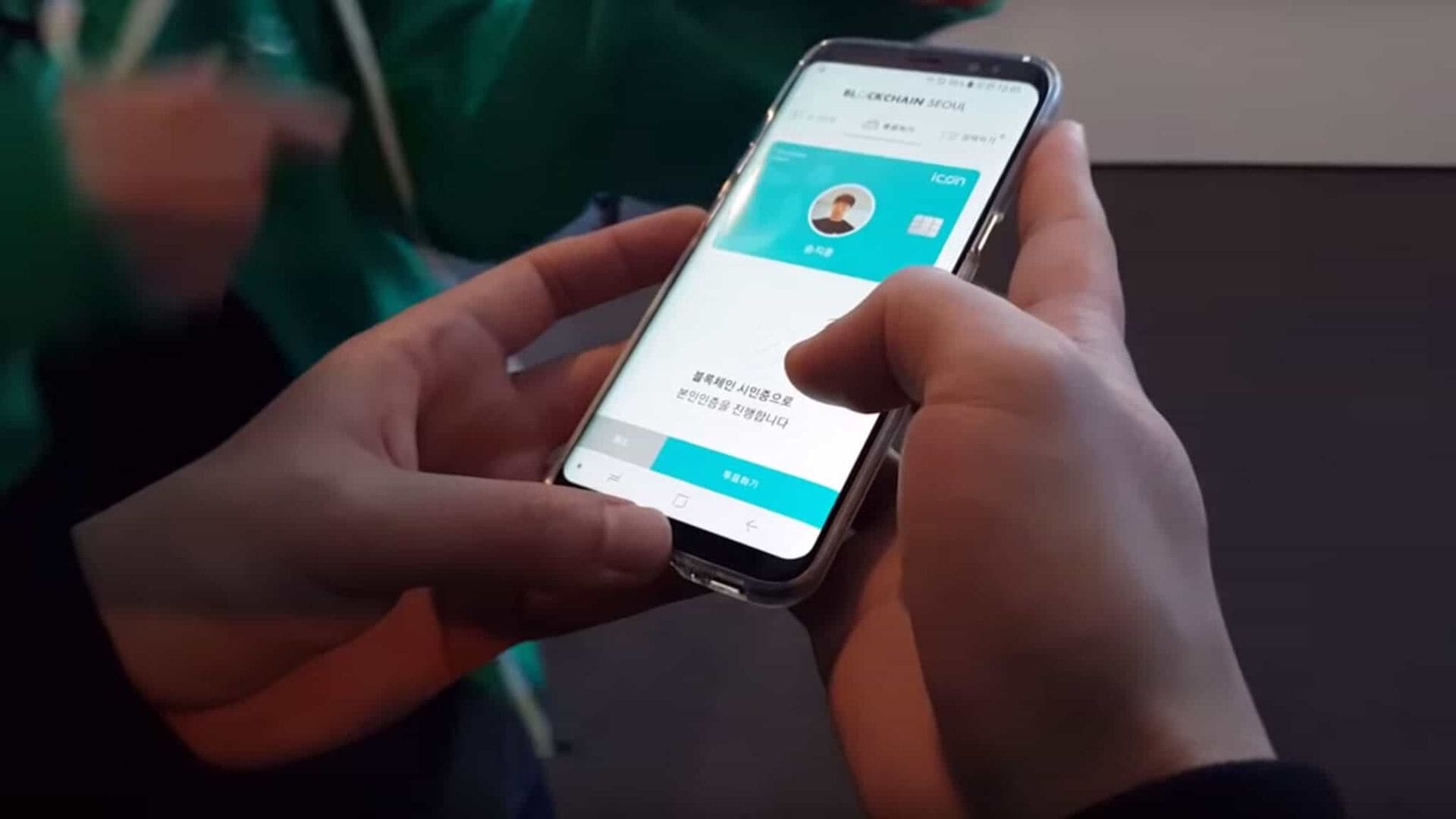
Source: Minicircle
A Voting Mechanism
In the second part of the demonstration, a user who successfully generated a blockchain ID could use it to participate in a mock vote.
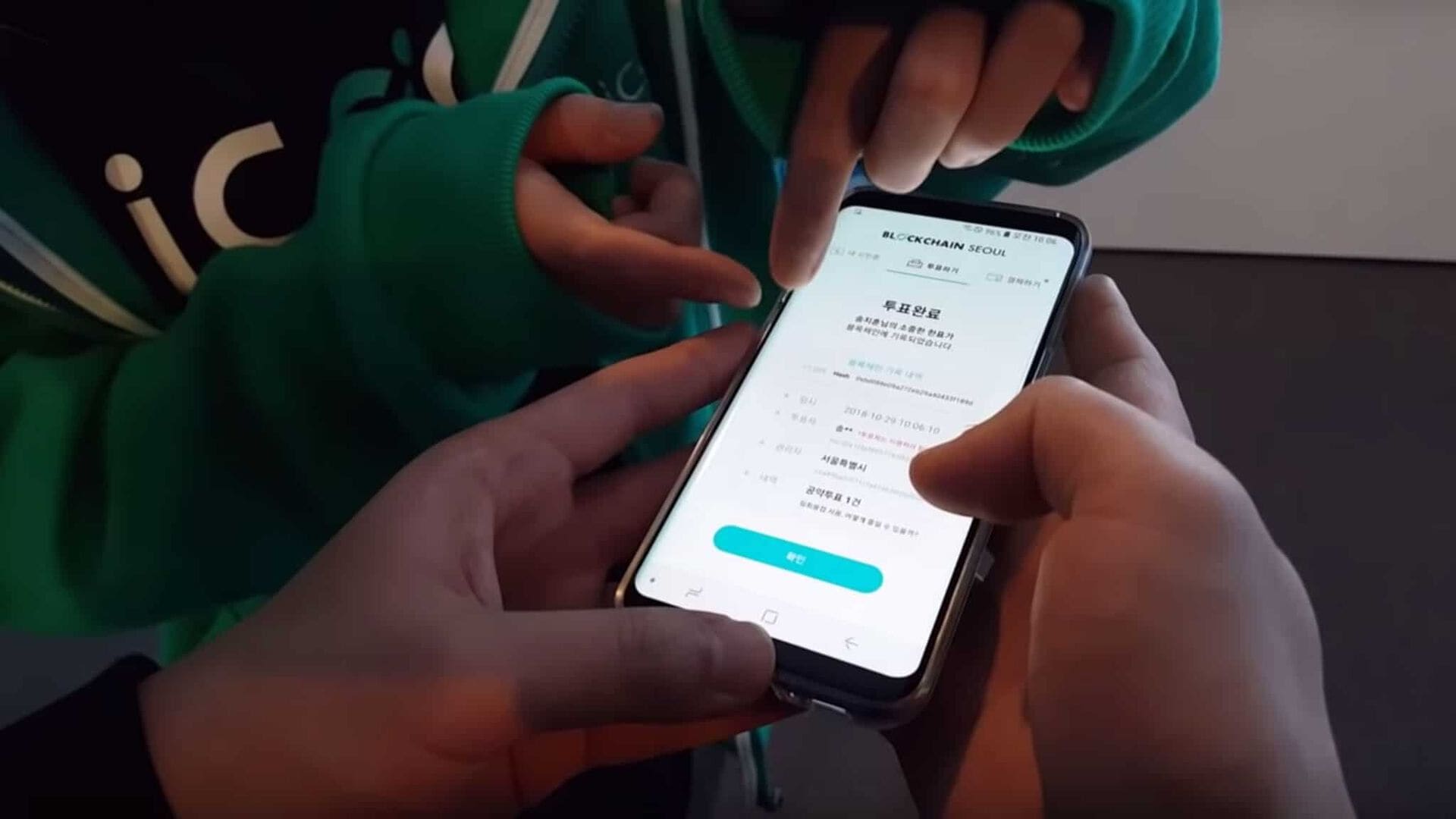
Source: Minicircle
S-Coin Payments System
ICON’s final demonstration in the Blockchain International Digital Festival was a payments system powered by a KRW-pegged cryptocurrency called S-Coin. In addition to S-Coin purchases via QR code, the demonstration also showed an S-Coin reward system for users who participated in the voting process. ICON Foundation’s announcement regarding the Blockchain International Digital Festival can be found here.
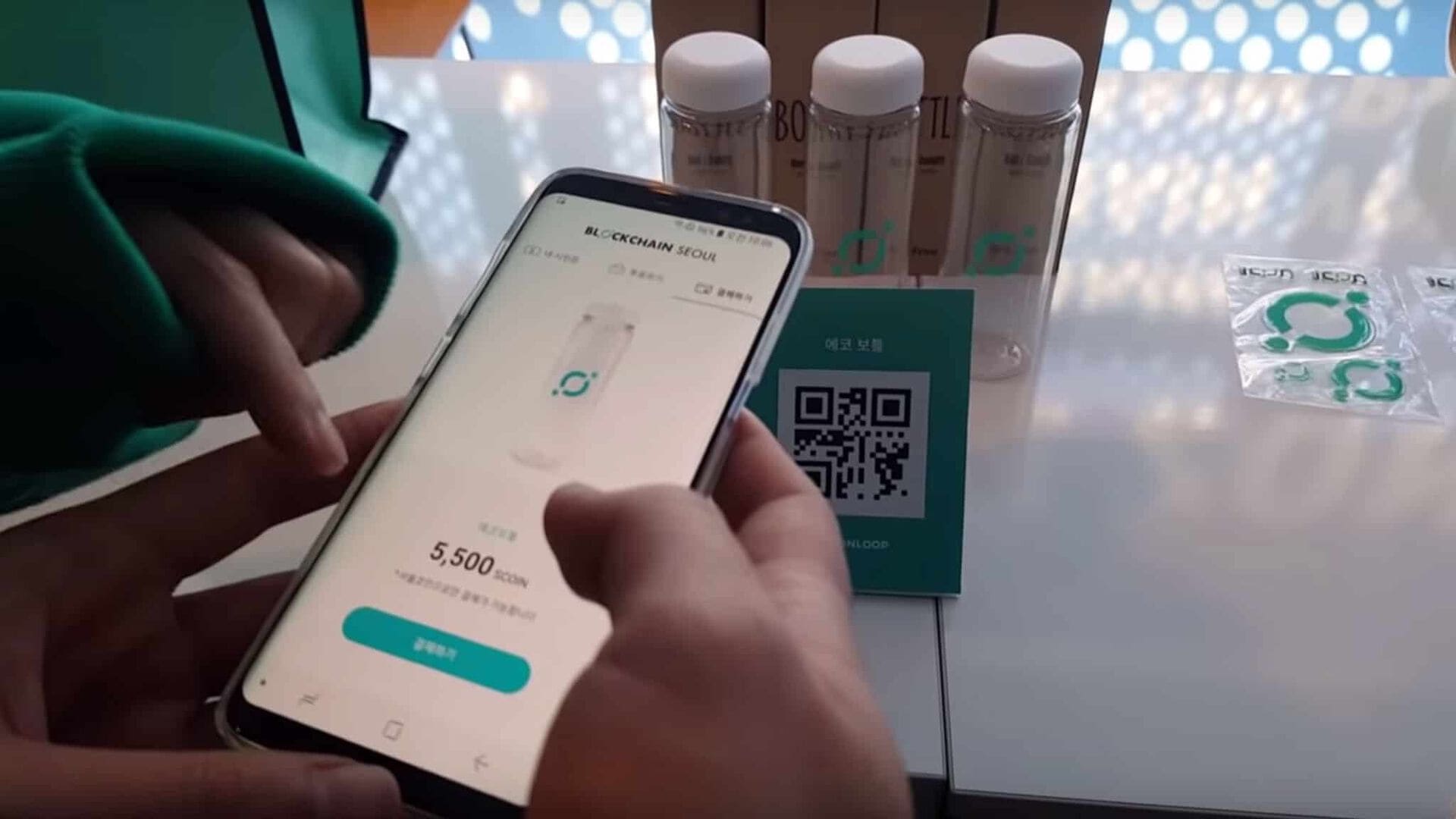
Source: Minicircle
February 2019
In February 2019, ICON Foundation announced that the Seoul Metropolitan Government had appointed members of its Blockchain Governance Team, a group of 100 people working on providing “blockchain administration services across several industries,” using the ICON public chain. In addition to piloting blockchain-based administration services, the Blockchain Governance Team was also tasked with “participating in the development process of Seoul Metropolitan City’s administration services, which include mileage points integration, citizenship card services, online authentication without documents, protection for part-time workers’ rights, and sub-contract payments”.
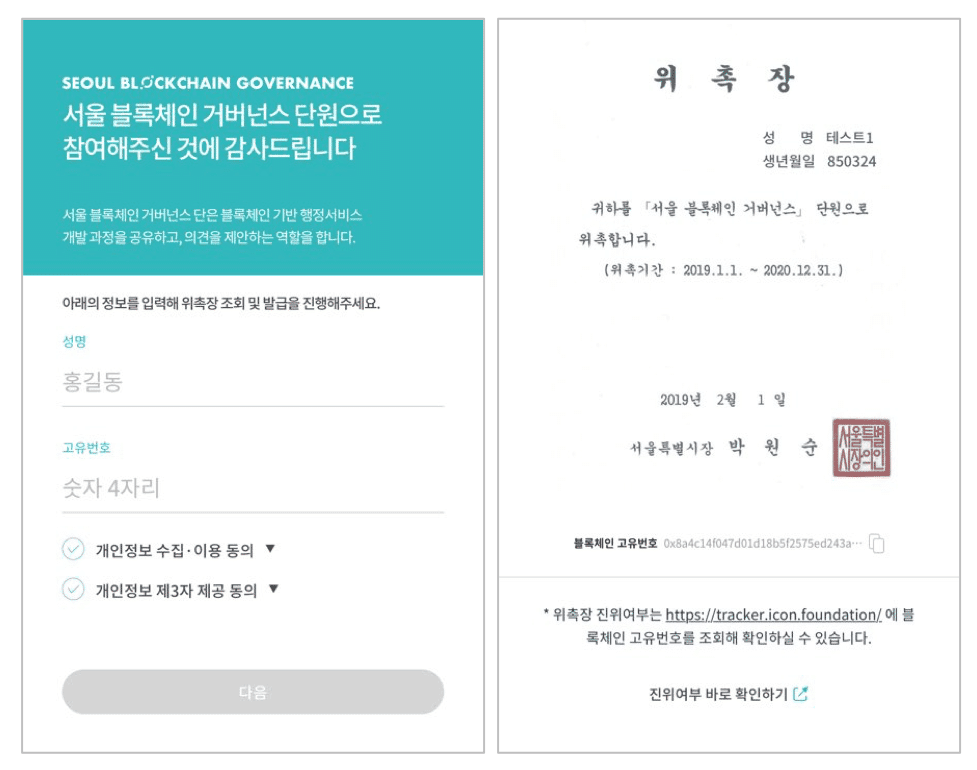
May 2019
In May 2019, Min Kim tweeted in response to an article published by The Block, and revealed that “ICONLOOP’s loopchain is Seoul Metro’s standard blockchain platform for all current and future applications”. In other words, all blockchain initiatives by the Seoul Metropolitan Government will use loopchain in one form or another. Private blockchain applications will utilize ICONLOOP-designed integrations, while public blockchain applications will use the ICON public chain, the only loopchain-based public blockchain.
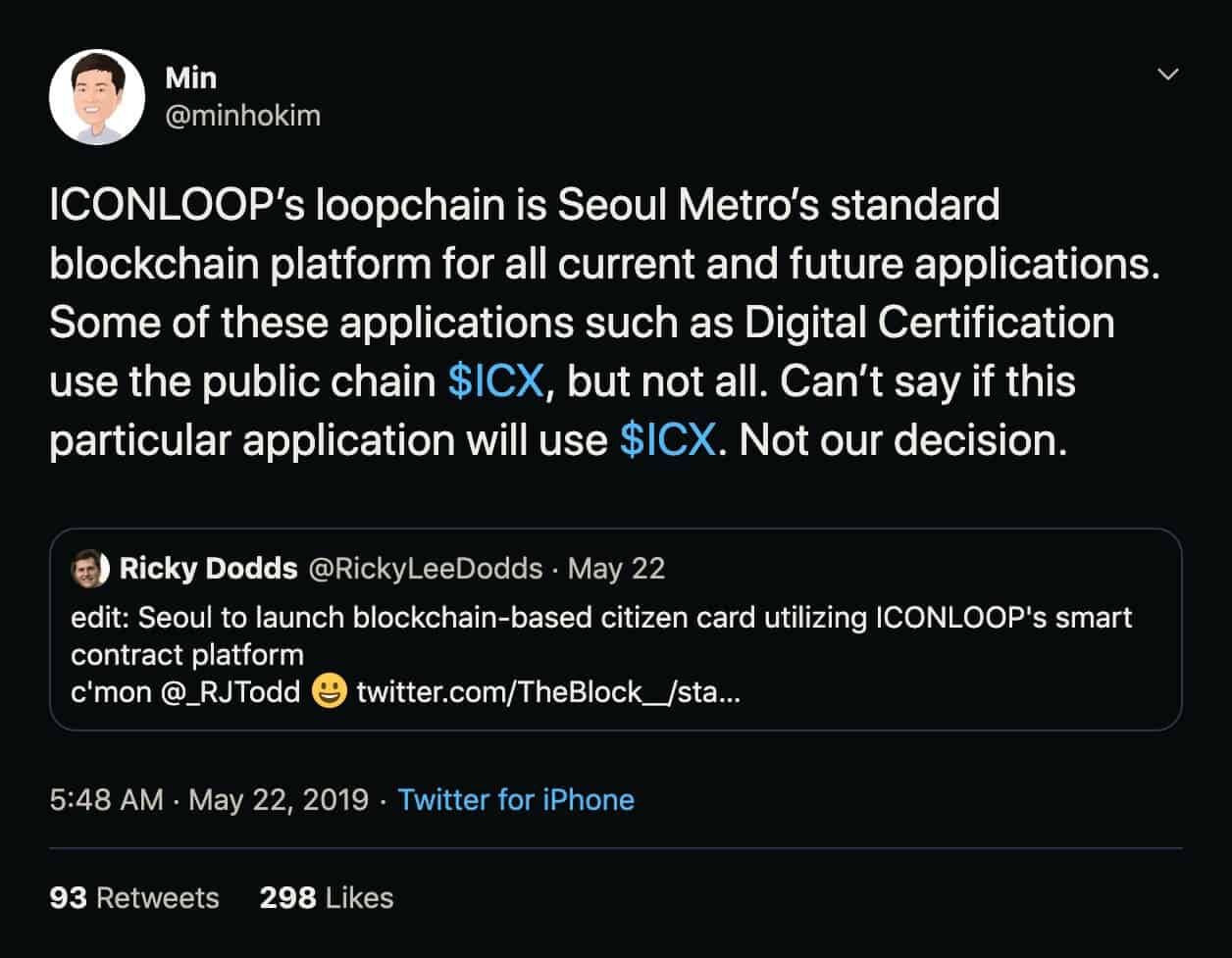
Source: Twitter
Connecting the Dots in Seoul
Now that we’ve laid out the groundwork and established ICON and ICONLOOP’s history with the Seoul Metropolitan Government, let’s look at CoinDesk’s article from this new perspective.
The Seoul Metropolitan Government will establish its first blockchain-based administrative services in November, according to a report in the Korean-language blockinpress. Three priorities were set for completion by the November deadline. The city’s blockchain points system will be introduced and residents of Seoul will receive S-Coins for the use of public services. They will be able to redeem those points for rewards. Services that generate the coins include paying taxes and participating in public opinion polls.
As we established earlier, S-Coin is a KRW-pegged cryptocurrency that was designed by ICONLOOP for October 2018’s demonstration at the Blockchain International Digital Festival. In addition to the S-Coin, a blockchain service for submitting qualifications without paper documents is also on the list for completion by November, as is the enhancing of the Seoul Citizens Card with blockchain to enable digital authentication for the use of public services. On a related-note, S-Coin is not the only ICON-related stablecoin project that exists. A proof-of-concept involving another pegged cryptocurrency called U-Coin was conducted at Sogang University, Korea University and Pohang University of Technology. ICON is also actively developing a stablecoin standard on the ICON public chain. ICON has reportedly identified a “business partner” to issue a stablecoin. It will be interesting to see if the mysterious business partner is related to S-Coin’s expected launch in November.
In addition to the S-Coin, a blockchain service for submitting qualifications without paper documents is also on the list for completion by November, as is the enhancing of the Seoul Citizens Card with blockchain to enable digital authentication for the use of public services.
A “blockchain service for submitting qualifications without paper documents” sounds a whole lot like Broof, which ICON describes as a “blockchain-based certificate issuance service based on the ICON network” that “supports certificate issuance, storage, and prevention of falsification”. Furthermore, “issuing authorities can reduce the cost of issuing and storing paper documents without having to create a separate database system” – this sounds exactly like what the Seoul government is looking to implement in November. ICON’s potential involvement is even clearer when you consider the Seoul Metropolitan Government has already utilized an early version of Broof to issue 100 blockchain certificates for its Blockchain Governance Team. Similarly, the Seoul Citizens Hall also issued 162 certificates to appoint 162 members of its Policy Communications Team. All 262 of these certificate issuances were done on the public ICON chain.
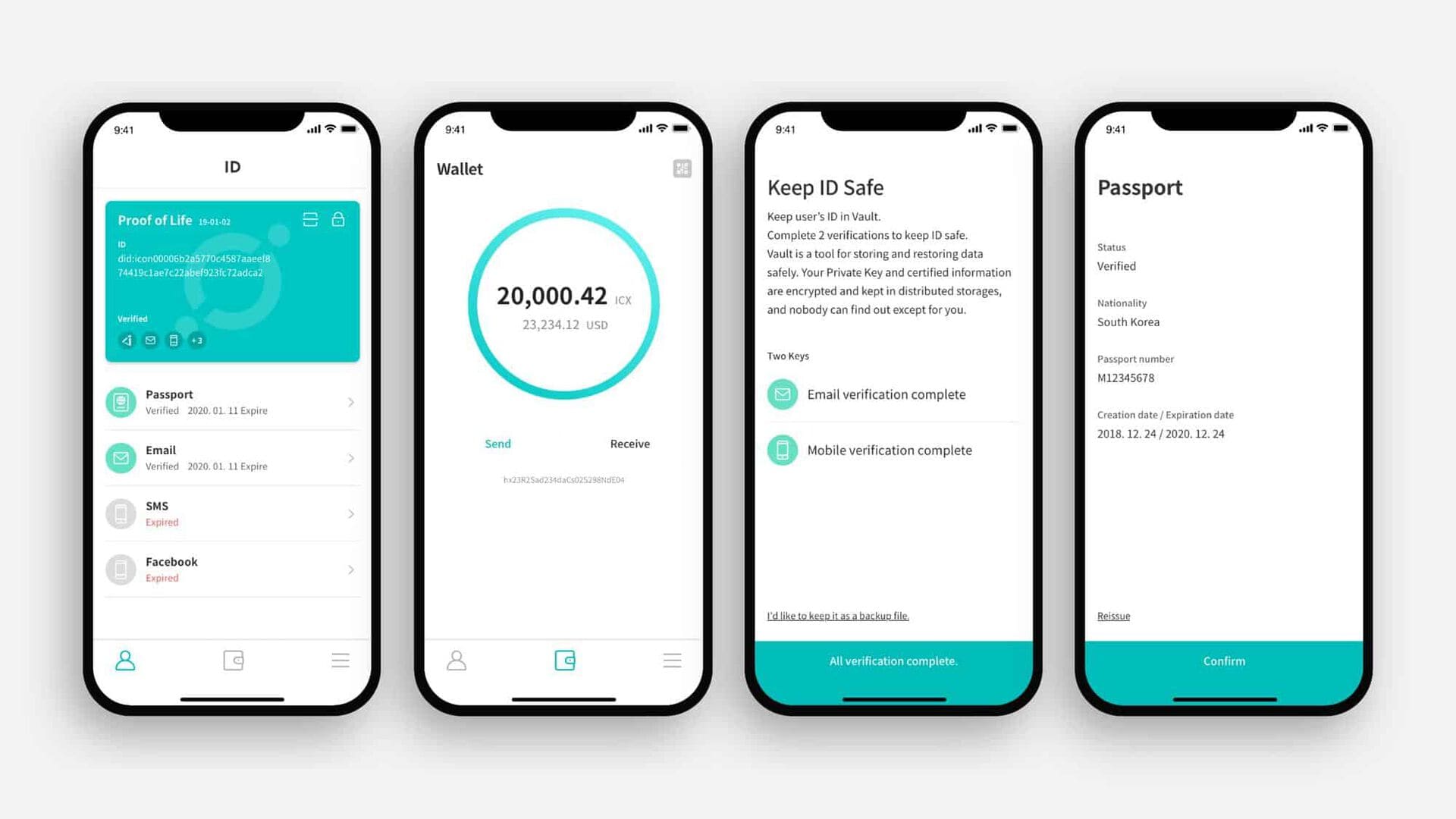
ICONLOOP’s DPASS app for iOS and Android.[/caption] Regarding the blockchain-based citizens card, we already know that ICONLOOP is the sole blockchain service provider on this project. Thus, “enhancing” the citizens card to “enable digital authentication for the use of public services” sounds like integration of ICON’s DID (decentralized identifier) standard, perhaps within the DPASS app, and eventually the FSC-approved MyID once it is out of its regulatory sandbox.
Other programs mentioned but not with year-end completion deadlines include smart healthcare, donation management and online certificate verification. By the end of the year Seoul would like to have its part-time workers rights program up and running. The blockchain-based system will allow part-time and temporary employees to sign simple contracts with employers, keep track of their work histories, and maintain time sheets. It will also help them properly register for the county’s four major social insurance programs. The aim is to improve trust and relations between small companies and part-time workers.
Back in February 2019, it was revealed that Seoul’s Blockchain Governance Team was exploring blockchain-based systems for protecting “part time workers’ rights” and “sub-contract payments”. Since we now know that ICONLOOP is the sole blockchain services provider for Seoul Metropolitan Government blockchain projects, it’s fairly safe to say that these exploratory initiatives were done in cooperation with ICONLOOP. The important thing to keep in mind here is that while these separate blockchain services in various sectors of society are innovative on their own, being able to connect them and execute complex smart contract routines is exponentially more powerful and useful.
While the blockchain services will be controlled by the city, they will be operated by private enterprises.
This sentence is a little vague, so I’m not exactly sure what it means. If I understand it correctly, it is stating that the smart contracts for these blockchain integrations will be controlled by the Seoul Metropolitan Government, while the technological infrastructure for executing these smart contracts will be provided by private enterprises like ICONLOOP and elected public representatives on the ICON network. Lastly, I don’t think it’s a coincidence that Seoul plans to kickstart this blockchain initiative in November – two months after the P-Rep election and decentralization of the ICON public chain.